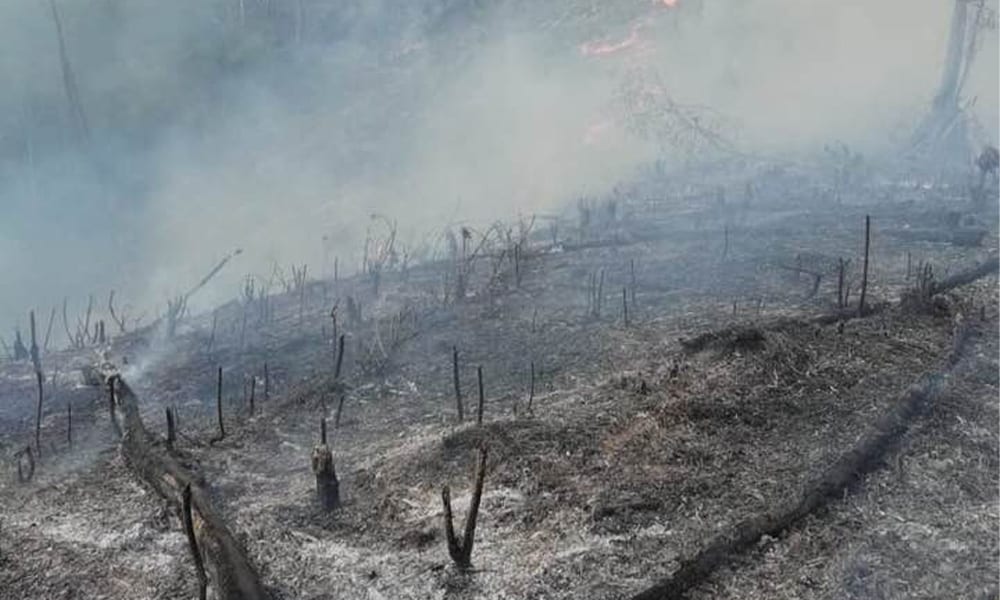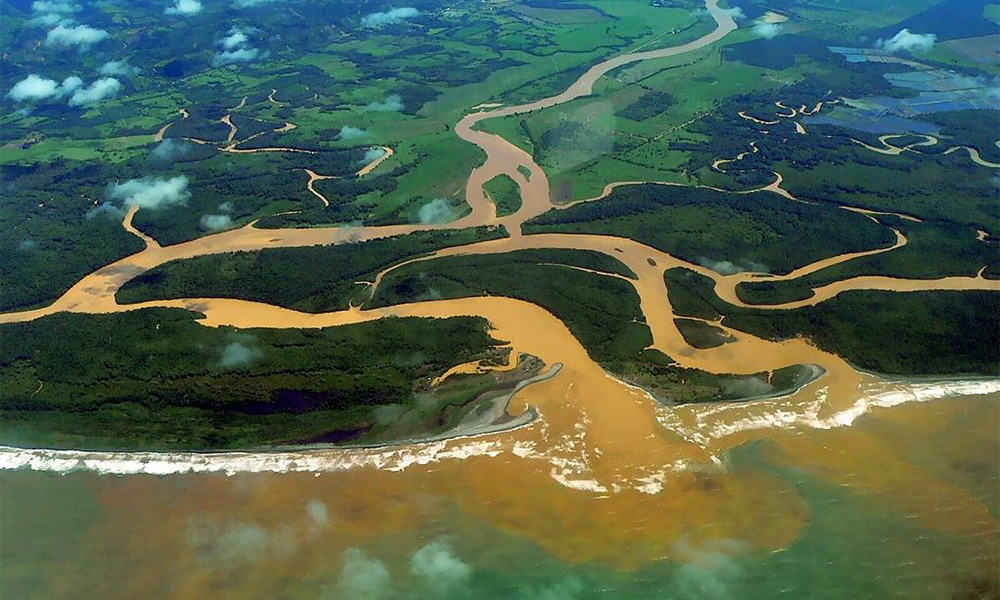There is a special kind of satisfaction that comes with making a purchase and feeling like we’ve done something positive for the health of the planet. If we buy a soda that is made from 100% recycled plastic, we feel like we are reducing waste and preserving natural resources. Buying free-range eggs makes us feel like we are supporting humane farming practices.
And if we buy anything labeled as “organic,” we feel like we are making a positive environmental impact, even if it is somewhat ambiguous what that impact may be. But what if we found out that our “environmentally friendly” and “cruelty-free“purchases were based on false pretenses?
We would likely feel duped and angry with the company that manipulated us. And this is just for simple supermarket items. When it comes to buying a home, which for many people is the largest purchase they will make in their lifetimes, that feeling of betrayal is multiplied exponentially. Unfortunately, this is exactly what is happening in Costa Rica and there is little to no oversight to keep the land development companies honest, resulting in large-scale greenwashing.
Greenwashing is the practice of using methods to manipulate consumers into thinking a business is partaking in more environmentally friendly practices than it is doing in reality. The term originated from Jay Westerveld, an American environmentalist who, while on vacation in Fiji, wrote an essay about how a hotel would ask guests to reuse their towels in order to save water and energy, while that same hotel was simultaneously expanding their facilities on sensitive coastal ecosystems.

This is a common greenwashing practice: focusing on a specific activity that may be environmentally-sound, while glossing-over other activities that are environmentally-damaging. In the case of the hotel in Fiji, there was an added incentive for their towel policy – it happened to save them money on laundry costs. Some companies try to sound environmentally conscious by using words like “organic” and “plant-based” or by adding the prefixes “bio-” or “eco-” in front of some words.
Since these words don’t have standard definitions, this allows sellers and buyers to interpret them to fit their needs. Sellers can convince buyers they are making an environmentally-friendly purchase and buyers can convince themselves that their act of consumption is good for the planet. In other situations, companies mislead or blatantly lie to consumers and with a lack of information available to the public, these companies can continue to do this without repercussions.
So why do companies greenwash? It may sound cynical, but it comes down to profits. Green sells. In an article for the National Resources Defense Counsel in February 2023, author Courtney Lindwall states that 85% of consumers claim to consider the environmental impact of their purchases more today than they did just five years prior. She further mentions that over a third of these buyers would consider paying more for a product, if they knew that it was for an environmentally-friendly cause.
And this trend in consumer behavior increases with Gen Zers, who often list climate change as the most serious crisis their generation will face in their lifetimes. So companies have learned it pays to be green and no one knows this better than property developers.
While there are companies that legitimately practice sustainable development, not all are truly green. Real Estate is a booming industry in Costa Rica, but unfortunately, in the pursuit of profit, not all developers play by the rules. While Costa Rica has well-intentioned environmental laws in the books to protect its natural places, there are limited resources to enforce them against bad actors who exploit this inadequacy. When removing trees, some developers have been reported to not go through the traditional permitting process, but rather cut down trees and ask for “forgiveness” later.
This is particularly egregious in the Southern Zone of Costa Rica, especially around Uvita and Ojochal, an area known as Costa Ballena. In this area, there have been many claims that some companies, in order to pave the way for high-density development projects, clear land using techniques from slash-and-burn agriculture. Since this is illegal, the burning often takes place at night, or on Sundays when government officials are less available to stop the actions.
These claims further state that when officials do inquire about the burnings, the companies attribute them to vandals and, although these explanations seem unlikely, there isn’t any evidence to prove otherwise. Furthermore, there are reports that builders have also been known to skirt laws on soil management, causing erosion in the area, which increases sediment entering the local rivers that serve as tributaries to the nearby Terraba-Sierpe National Wetlands.

When this sediment enters the waterways, it destroys mangrove systems, coral reefs, and other marine ecosystems. While neighbors or private individuals who have witnessed some of these actions can file a public complaint against the alleged wrongdoing, there have been many reports of whistleblowers being intimidated by the accused company through threats of lawsuits. In some of the more serious cases, some individuals have claimed that these companies have sent “goons” to threaten them with physical violence to themselves, their families, and even their pets.
Since Costa Ballena is located in a particularly striking location, being blessed with both stunning beaches and rainforests that are rich in biodiversity, people are willing to pay high prices for land. Some developers, knowing buyers would think twice before purchasing if they knew the full story of how the land was managed, have decided to utilize greenwashing techniques to make consumers feel at ease when they purchase their “piece of paradise.”
Some of the companies that partake in the same anti-environmental practices mentioned prior will advertise themselves as “eco-friendly,” displaying on their websites images of the diverse flora and fauna of the area, along with unverified claims, or outright lies, of sustainable practices.
The average buyer enters the market without all the information available to them, so they have to trust that a real estate agent will be up front with them about the land’s environmental footprint. Unfortunately money has the power to corrupt, so often these consumers don’t get the full story and buy the properties without realizing they are contributing to the problem of environmental degradation in the area by supporting these companies.
It is important to protect the natural surroundings of Costa Ballena, not only because it is a place of immense beauty, but it is also a vital part of the Paso de la Danta, a biological corridor that allows fauna to pass freely from the South Pacific to the centrally-located Zona de los Santos.
With access to the internet, we have the potential to be more informed than any prior time in human history. However, with the sheer amount of information out there, we also have the potential to be more misinformed. This is why we cannot be passive consumers. We need to educate ourselves and know how to recognize when a company is using manipulative greenwashing techniques. One red flag is when companies are vague about their environmental contribution.
An authentically green company will be specific with concrete evidence of how their product or service is making a positive contribution. We also need to actively research these companies. Check to see if a company is aligned with any of the United Nations’ climate and sustainability initiatives, or if they belong to any credible international organizations, such as One Percent for the Planet (onepercentfortheplanet.org), in which members pledge to donate 1% of their annual revenue to environmental causes. There are also third-party certification agencies, such as B Corp (bcorporation.net) that verify if a company is adhering to specific environmental standards.
In addition, check to see if there are any organizations working on a more local level. In Costa Ballena, the organization Osa Vive (osavivecostarica.org) strives to promote sustainable development, which includes providing information about the environmental practices of local land development companies and assistance in filing claims against companies that are not following environmental laws. Due vigilant against greenwashing is important.
As stated in her article for the National Resources Defense Council, Ms. Lindwall points out: “Over time, greenwashing erodes consumer faith, which makes us more likely to dismiss environmental claims altogether—even the ones that are legitimate.” The fight against disinformation is one of the most important battles of our times.
About the Author
Ryan Meczkowski is a Naturalist Guide and Founder of CR Naturalist Experiences, which offers night walks and educational nature excursions in Uvita de Osa. Email: cr.naturalist@gmail.com WhatsApp +506 6132 9436






